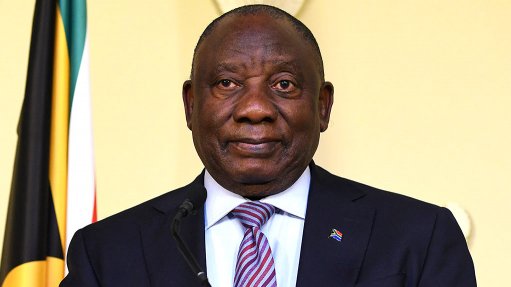Going through the ‘car wash’
By now, everyone is aware that the International Monetary Fund (IMF) has cut its economic growth forecast for South Africa from 1.3% to 0.7%. Which is utterly dismal. Unless you are a Brazilian. Brazilians would love growth of 0.7% this year. What they will get, the IMF forecasts, is a contraction of 3.5% and this will follow on from a contraction of 3.8% last year. The Brazilian economy is also forecast to stagnate next year and only recover in 2018.
Brazil is in its worst economic hole since the Great Depression. In part, this is the result of the failure of Workers’ Party (PT) presidents Luiz Inácio Lula da Silva (Lula – in office from 2003 to 2010) and Dilma Rousseff (2011 to date) to drive through economic reforms which would have made the Brazilian economy more competitive. Instead, they were content to ride the waves generated by the reforms of previous President Fernando Henrique Cardoso (in office from 1995 to 2002) and by China’s then explosive growth. Strangely, perhaps, for politicians from the PT, they were content to let Brazil’s primary-products sector boom while neglecting its industries, built up with great effort over decades. Less surprisingly, Brazil’s industrial heartlands, once the areas from which the PT drew its greatest support, are now bastions of the party to which Cardoso belongs, the Brazilian Social Democratic Party. The PT’s main support areas are now the country’s poorer, less developed, rural states.
But Brazil’s present mess is also the result of an absolutely gigantic corruption and abuse-of-influence scandal centred on the predominantly (51%) State-owned oil group, Petrobras. It all started in 2004 and involved fraud, bribery and kickbacks, including leading politicians and political parties in the ruling coalition. The PT itself is alleged to have received $200-million as a result. And Rousseff was chairperson of Petrobras during part of the time this racket was running. Prior to Lula’s Presidency, Petrobras had been free of political interference and had become a highly respected enterprise. Lula made a lot of political appointments to the management. In the words of Georgetown University Centre for Latin American Studies adjunct professor Monica Arruda de Almeida, this “really derailed the management of the company . . . many people from particular parties, from the PT, were there controlling whole departments . . . they arranged for the kickback schemes”.
Such is the size and importance of Petrobras that the corruption within it metastasised into other sectors and businesses, creating a complex network of illegality. As of October, contracts worth $20-billion were being investigated. Last year, in its results for 2014, Petrobras estimated that it had lost $2-billion as a direct result of corruption, while it also had to make a $16.8-billion write-down on assets that had been overvalued as a result of corruption and mismanagement. The scale is so huge that many Brazilians believe it to be the biggest corruption scandal in the country’s nearly 200 years of independence – perhaps even the biggest in its 500 years of history.
It is all coming out in the wash – the Car Wash. Brazil’s Financial Intelligence Unit detected large amounts of money in the bank accounts of small companies doing business with Petrobras – companies which, moreover, had no experience in the oil sector. The unit suspected money laundering and alerted the Federal Prosecutor’s Office and the Federal Police. An investigation was launched, code-named Lava Jato (literally: Jet Wash, but in this context it means Car Wash, as the first of the companies to be investigated was located on a site that once held a car wash). Phone tapping rapidly led to much bigger fish, who entered plea bargains and implicated even bigger fish, leading to arrests of top Petrobras officials, other leading businesspeople (including, now, Brazil’s thirteenth-richest man) and major politicians. Many more are under investigation. Early this month, Rousseff was herself implicated for the first time.
What is striking is Rousseff’s (and the wider PT’s) complete inability to halt, delay, or in any way interfere with the relentless investigations of the Federal Police and the prosecutions by the Federal Prosecutor’s Office. Technically, they fall under the executive branch of government, which she heads. But, under Brazilian law, it is difficult, if not impossible, to make political appointments to these agencies. So, like everyone else in Brazil, Rousseff has to wait, watch and wonder what happens next, as the investigations, prosecutions and trials roll on. There is clearly a long way to go still.
There will be enormous political repercussions. Almost no one in Brazil seriously believes that Rousseff will serve out her term; the probability of impeachment is now very high, although it would take months to execute. Her own Vice President, Michel Temer, of the Brazilian Democratic Movement Party, has been distancing himself from her. (Should Rousseff be impeached or resign, Temer would become President.) The once enormously popular Lula is now totally discredited, and the PT likewise – its reputation is now the worst of any Brazilian political party. Even the very system of an executive presidency may have been discredited; some leading politicians (not involved in the scandal) and opinion formers are seriously suggesting major constitution reform to restore a parliamentary system. (Brazil is probably the only Latin American country to have ever employed the parliamentary system of government, which it had for most of the 19th century, when the country was a constitutional monarchy.)
Yet, although Brazilians are too depressed to grasp it yet, Lava Jato is turning into an impressive display of the strength of key Brazilian institutions and a stunning display of a system that is working. Impunity of the rich and powerful in the country has been crumbling slowly over the past 25 or so years – in large measure due to courageous judges, federal prosecutors and federal police agents. Lava Jato is set to make it clear, at last, that no-one in Brazil is above the law or out of reach of justice. Achieving that, with its huge long-term social and economic benefits, will, I think, be worth the current recession.
Comments
Announcements
What's On
Subscribe to improve your user experience...
Option 1 (equivalent of R125 a month):
Receive a weekly copy of Creamer Media's Engineering News & Mining Weekly magazine
(print copy for those in South Africa and e-magazine for those outside of South Africa)
Receive daily email newsletters
Access to full search results
Access archive of magazine back copies
Access to Projects in Progress
Access to ONE Research Report of your choice in PDF format
Option 2 (equivalent of R375 a month):
All benefits from Option 1
PLUS
Access to Creamer Media's Research Channel Africa for ALL Research Reports, in PDF format, on various industrial and mining sectors
including Electricity; Water; Energy Transition; Hydrogen; Roads, Rail and Ports; Coal; Gold; Platinum; Battery Metals; etc.
Already a subscriber?
Forgotten your password?
Receive weekly copy of Creamer Media's Engineering News & Mining Weekly magazine (print copy for those in South Africa and e-magazine for those outside of South Africa)
➕
Recieve daily email newsletters
➕
Access to full search results
➕
Access archive of magazine back copies
➕
Access to Projects in Progress
➕
Access to ONE Research Report of your choice in PDF format
RESEARCH CHANNEL AFRICA
R4500 (equivalent of R375 a month)
SUBSCRIBEAll benefits from Option 1
➕
Access to Creamer Media's Research Channel Africa for ALL Research Reports on various industrial and mining sectors, in PDF format, including on:
Electricity
➕
Water
➕
Energy Transition
➕
Hydrogen
➕
Roads, Rail and Ports
➕
Coal
➕
Gold
➕
Platinum
➕
Battery Metals
➕
etc.
Receive all benefits from Option 1 or Option 2 delivered to numerous people at your company
➕
Multiple User names and Passwords for simultaneous log-ins
➕
Intranet integration access to all in your organisation


















